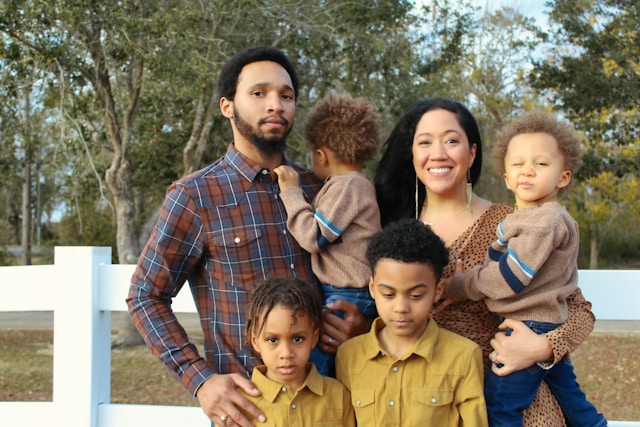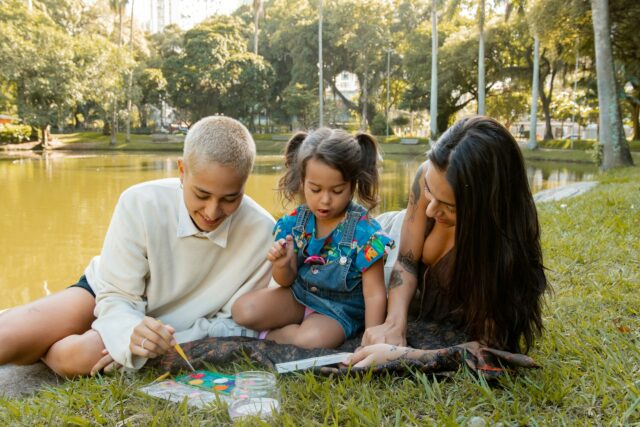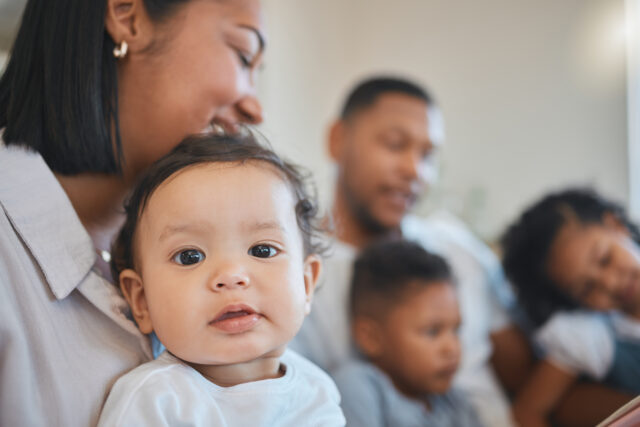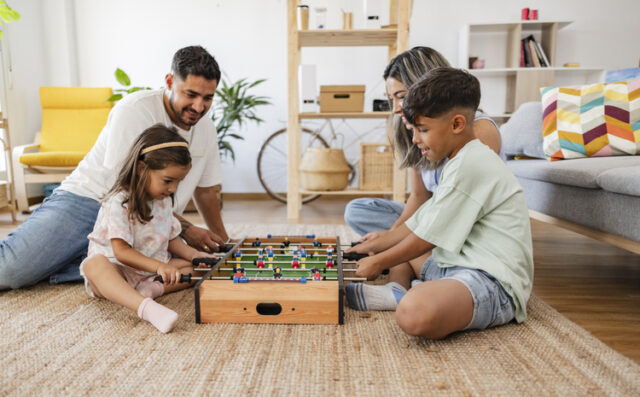Raising kids certainly looks way different now than it did a generation ago.

A lot of parents today, many of whom are millennials, are choosing to do things a little (or a lot) differently from how they were raised, not because their own parents failed, but because they’re trying to lead with intention, empathy, and maybe a bit of healing too. Here are some of the ways this generation is flipping the script on parenting, one choice at a time.
1. They explain things instead of just saying “because I said so.”

Remember being told to do something without a clue why? A lot of parents now are making space to talk it through. Instead of giving orders, they’ll say, “Here’s what’s going on,” or “Let me tell you why this matters.” It doesn’t mean they’re giving kids a say in everything, either. It just means they’re treating them like people who deserve to understand what’s happening, not tiny robots programmed to obey.
2. They let their kids feel their feelings—all of them.

No more “stop crying” or “you’re fine” just to rush past the hard stuff. Today’s parents are way more likely to say, “That sounds tough” or “Want to talk about it?” They’re not brushing things off; they’re naming emotions instead of avoiding them. That doesn’t make them soft. In reality, it helps kids grow up knowing that having feelings is normal and nothing to be ashamed of.
3. They’re ditching the old-school punishments.

Smacking, yelling, or punishment “just because” is getting phased out. More and more parents are using consequences that actually connect to the behaviour—stuff that teaches, not just punishes. They’re choosing calm over control. And while it’s not always easy in the moment, it helps kids learn from what happened instead of feeling scared or confused.
4. They talk to their kids like they matter—because they do.

There’s a real shift in how parents are speaking to their kids. Less barking orders, more checking in. Less “do what I say,” more “let’s talk about what just happened.” It’s about treating kids like actual humans with opinions and emotions—not mini adults, but not invisible either. That kind of respect shows up in the everyday stuff.
5. They’re finally normalising mental health.

Back when they were kids, no one talked about anxiety or therapy at the dinner table. Now? Parents are saying things like “I had a rough day” or “I’m going to therapy because I want to feel better.” And their kids are hearing every word. That openness helps kids grow up knowing it’s okay to ask for help. Mental health isn’t hidden anymore. It’s part of the conversation, just like anything else that matters.
6. They let kids question things, even them.
 Source: Unsplash
Source: Unsplash Getting pushback from your kid doesn’t always mean they’re being rude. Today’s parents are letting their kids ask why, say “I don’t agree,” and even call out unfairness, and they’re not shutting it down. They’re not letting the kids run the show. Instead, they’re teaching them how to speak up, think for themselves, and know that their voice matters, even when they’re still learning how to use it.
7. They’re actively breaking cycles they grew up with.

Millennials are doing a lot of unlearning. Whether it’s yelling, silent treatment, or pretending everything’s fine when it’s clearly not, they’re noticing the patterns and saying, “Yeah, I’m not passing that down.” They’re going to therapy, reading the books, having the hard conversations. It’s not easy, but they’re choosing to show up differently, even when it means doing the exact opposite of what they were taught.
8. They’re focusing more on connection than control.

Instead of obsessing over obedience or perfectly behaved kids, they’re asking, “How do we stay close through the hard stuff?” It’s less about raising quiet rule-followers and more about raising kids who feel safe to be themselves. That means more hugs during meltdowns, more “let’s take a breath,” and less yelling just to be heard. They’re parenting from relationship, not power trips.
9. They’re moving away from shame-based parenting.

Gone are the days of embarrassing your kid into better behaviour. Instead of scolding in public or forcing apologies, they’re leaning into conversations that help kids understand their impact without making them feel like they’re bad people. It’s not about letting kids off the hook; it’s about building real accountability without breaking their spirit. They’re teaching, not shaming.
10. They’re not pretending to have it all together.

This generation isn’t interested in being perfect parents. They mess up, they lose their temper, they say the wrong thing, and then they own it. “I’m sorry I yelled. I should’ve handled that better.” That honesty teaches kids that adults make mistakes too, and that making it right matters more than pretending to be flawless. It builds trust, not fear.
11. They’re letting their kids be individuals, not extensions of themselves.

Instead of pushing their kids into one “right” path, they’re letting them explore what actually fits, even if it’s totally different from how they were raised. Different interests, styles, identities, timelines? All welcome. They’re not raising carbon copies. They’re raising people, and that change is helping kids feel seen for who they are, not just who someone hoped they’d be.
12. They’re navigating tech with curiosity, not panic.
 Source: Unsplash
Source: Unsplash Screens, social media, gaming—it’s all part of life now. Instead of pretending it doesn’t exist or banning everything, parents are asking questions, setting boundaries, and learning alongside their kids. They’re not perfect with it, but they’re trying to create balance instead of fear. They’re not interested in trying to control everything. They’re far more interested in staying connected through the mess.
13. They’re more focused on raising emotionally aware kids than “successful” ones.

Sure, they want their kids to do well, but they also want them to know how to name their feelings, apologise when needed, and feel safe in their own skin. It’s not just about grades or trophies anymore. Success looks different now. It’s kindness, self-awareness, empathy. That change is shaping a whole new kind of family dynamic —one that feels more like partnership than pressure.




